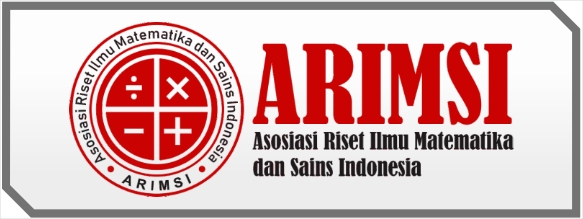Efektivitas Pembelajaran Problem Solving Ditinjau Dari Gaya Belajar Siswa
DOI:
https://doi.org/10.59581/konstanta.v1i3.909Keywords:
Effectiveness, Problem Solving, Learning StyleAbstract
Mathematics is one of the subjects taught at all levels from basic education to higher education, which has a significant role in preparing students to have the ability to think logically, analytically, systematically, critically and creatively, as well as have the ability to work together. One of the activities in learning mathematics at school is through problem solving. Problem solving aims to see students' understanding of a material. Mathematical problem solving ability is a very important part of learning mathematics. However, in reality, the problem-solving ability of junior high school students' mathematics is still very low. From these problems, then one of the lessons that can improve the ability to solve mathematical problems is Problem Solving learning. One of the factors that influence differences in problem solving ability is learning style. Learning styles have a close relationship and influence on the learning process in order to achieve learning goals. With students knowing their learning style, learning Problem Solving can be done easily. The subjects of this study were students of class VIII A MTs Plus Sunan Drajat Kedungsantren Bojonegoro. The purpose of this study was to determine the effectiveness of Problem Solving learning on mathematics learning outcomes when viewed from students' learning styles. The type of research used is quantitative research with the One Group Pretest-Posttest Design. The results showed that testing the data on mathematics learning outcomes with the Paired Sample T-Test stated that the t_count value was -9.726. The t_count value is negative, because the pretest average value is lower than the posttest average value. In this case, the t_count value can be positive so that it becomes 9.726. Meanwhile, the value of t_table with α = 0.05 and degrees of freedom (dk=n-1) with 24 students is 1.714. Then it can be seen that t_count > t_table, then H0 is rejected and Ha is accepted, meaning that there is a significant difference. So it can be concluded that the application of the Problem Solving learning model is quite effectively carried out in the teaching and learning process for class VIII A students of MTs Plus Sunan Drajat Kedungsantren on the material of geometric shapes on the flat sides of cubes and blocks.
References
Ati, T. P., & Setiawan, Y. (2020a). EFEKTIVITAS PROBLEM BASED LEARNING-PROBLEM SOLVING TERHADAP KEMAMPUAN BERPIKIR KRITIS DALAM PEMBELAJARAN MATEMATIKA SISWA KELAS V. 04(01), 294–303.
Ati, T. P., & Setiawan, Y. (2020b). EFEKTIVITAS PROBLEM BASED LEARNING-PROBLEM SOLVING TERHADAP KEMAMPUAN BERPIKIR KRITIS DALAM PEMBELAJARAN MATEMATIKA SISWA KELAS V. 04(01), 294–303.
Kepa, S. (2019). ANALISIS PEMAHAMAN KONSEP DAN KEMAMPUAN PEMECAHAN MASALAH PERBANDINGAN TRIGONOMETRI DITINJAU DARI GAYA BELAJAR SISWA SMA NEGERI 1 BANDA NEIRA. In Journal on Pedagogical Mathematics (Vol. 1, Issue 2).
Kristiyani, T., Psikologi, F., Sanata, U., & Yogyakarta, D. (n.d.). EFEKTIVITAS METODE PROBLEM-BASED LEARNING PADA MATA KULIAH PSIKOLOGI KEPRIBADIAN I (REPLIKASI).
Purwaningsih, D., & Ardani, A. (2020). KEMAMPUAN PEMECAHAN MASALAH MATEMATIS MATERI EKSPONEN DAN LOGARITMA DITINJAU DARI GAYA BELAJAR DAN PERBEDAAN GENDER. AKSIOMA: Jurnal Program Studi Pendidikan Matematika, 9(1), 118. https://doi.org/10.24127/ajpm.v9i1.2632
Bimastuti, R. (2021). Gaya Belajar KOLB terhadap Kemampuan Problem Solving Matematika Pada Siswa. In JPP (Vol. 38, Issue 2).
Heny Priska, V., & Universitas Kristen Satya Wacana Salatiga, M. (2021). Meta Analisis Efektivitas Model Pembelajaran Problem Solving dan Model Pembelajaran Problem Posing Ditinjau Dari Kemampuan Berpikir Kritis Siswa. 7(1), 220–227. https://doi.org/10.31949/educatio.v7i1.928
Ifyanti, A. I., & Dewi, N. R. (2022). Kajian Teori: Analisis Kemampuan Pemecahan Masalah melalui Model Pembelajaran Preprospec Berbantuan TIK dengan Nuansa STEAM. PRISMA. Prosiding Seminar Nasional Matematika, 5, 391–396. https://journal.unnes.ac.id/sju/index.php/prisma/
Kelas, M. S., Smp, V., Aimas, M., & Sorong, K. (2019). Kemampuan Penyelesaian Soal Open Ended Berbasis Problem Solving. Jurnal Pendidikan, 7(2).
Anis, U. K. (2022). Penerapan Experiental Learning pada Matakuliah Belajar dan Pembelajaran Berbasis Gaya Belajar. 03(01), 179-188.
Rika, P. F. A. (2020). EFEKTIVITAS MEDIA PEMBELAJARAN BERBASIS E-LEARNING PADA MATA PELAJARAN IPS TERPADU SISWA KELAS VIII MTs-SA HIDAYATUS SHOLIHIN TLOGOHAJI SUMBERREJO BOJONEGORO TAHUN PELAJARAN 2019/2020.













